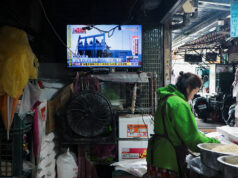10th petition vs anti-terrorism law filed
By Vann Marlo M. Villegas, Reporter
MORE THAN 40 activists and human rights groups jointly filed the 10th petition before the Supreme Court against the law that expands the definition of the crime of terrorism, which officially took effect July 18.
The 44 petitioners seeking the court to declare unconstitutional the Anti-Terrorism Law is led by Bagong Alyansang Makabayan (BAYAN), Movement Against Tyranny, Karapatan and veteran activists, according to a statement in a social media post of BAYAN Secretary General Renato M. Reyes, Jr.
“With the terror law already deemed effective, the petitioners are asking the High Court to stop the convening of the Anti-Terror Council and the exercise of its functions, to stop the drafting the of the IRR and the convening of the Joint Oversight Committee under Section 50 of the assailed law,” they said in a statement on Sunday.
“The petitioners are asking the SC to strike down the entire law for being unconstitutional.”
Artists and members of the academe and religious groups joined the petition, which was filed electronically.
A hard copy of the petition will be filed on July 23.
The National Union of Peoples’ Lawyers serves as their legal counsel.
Petitioners argued that the law violates the due process clause because of its “extremely vague” definition of terrorism.
They also said it violated the free speech clause, “constitutional right to due process, right to property, and freedom of association, and for usurping judicial prerogatives,” citing the provision on designation of terrorist individuals, groups of persons, organizations and associations.
They also raised concern over the constitutional protection against warrantless arrest and detention without charges as well as right to bail and to travel.
The anti-terros law considers attacks that cause death or serious injury, extensive damage to property and manufacture, possession, acquisition, transport and supply of weapons or explosives as terrorist acts.
It will also create the Anti-Terror Council, which will be made up of Cabinet officials who can perform acts reserved for courts, such as ordering the arrest of suspected terrorists.
The law also allows the government to keep a suspect in jail without an arrest warrant for 14 days from three days previously.
Justice Secretary Menardo I. Guevarra on Friday said the government will be drafting the implementing rules and regulation for the law.
The Supreme Court has consolidated the first eight petitions against the law on June 14 and asked the government to answer the lawsuits.
The Office of the Solicitor General said it has filed its comment, asserting that the Anti-Terrorism Act embodies the state’s policy “‘to protect life, liberty, and property from terrorism, to condemn terrorism as inimical and dangerous to national security of the country and to the welfare of the people, and to make terrorism a crime against the Filipino people, against humanity, and against the Law of Nations.’”
“The Anti-Terrorism Act is needed to fight the continuous and aggressive security threats brought about by terrorism,” the state’s counsel said in a statement on Friday.
Meanwhile, the Catholic Bishops’ Conference of the Philippines (CBCP) expressed alarm over the new law, which it said interferes with people’s rights and leads to the fall of democracy.
CBCP Acting President Pablo Virgilio S. David, in a Pastoral Letter on Sunday, questioned the passage of the bill at a time when the government should focus on the crisis spawned by the coronavirus disease.
Mr. David said they support the petitions filed against the law.
“Hindi namin maiwasan makibahagi sa pag-aalala na ipinahayag ng mga abogado at ordinaryong mamamayan na nagpadala ng petisyon sa Korte Suprema laban sa batas na hindi sinasang-ayunan ng marami (We can’t avoid taking part in the concerns raised by lawyers and ordinary people who filed a petition before the Supreme Court against the law that many disagree with),” he said. — with Gillian M. Cortez



